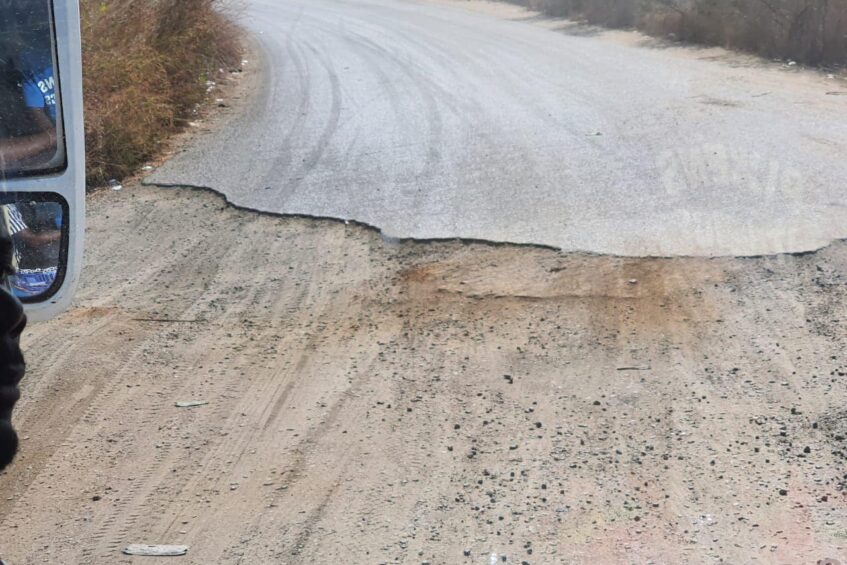
Photo depicts significant damage along the Juba-Nimule highway. (Photo/Eye Radio).
The National Council of Ministers passed the Vehicle Load Control Bill, 2024 in a bid to protect the roads from damages.
Information Minister Micheal Makuei said South Sudan highways have been facing costly challenges related to vehicles overloading.
Makuei said the bill, presented by Justice Minister Ruben Madol Arol, aims to regulate the weight of vehicles to avoid destruction of the roads.
“As we know very well, here in South Sudan, we have been facing a lot of problems in terms of loads of the vehicles,” Makuei told reporters following the cabinet meeting on Friday.
“All the roads here in South Sudan are supposed to have their own weights but here in South Sudan there have been nothing as such so all the trucks that have been moving to South Sudan has been without control.”
“It requires that we establish this bill, and we passed this bill in order to control the weight of the vehicles that use the road. This is one of our major problems,” Makuei added.
Overloading vehicles can have serious consequences for both the vehicles themselves and the road infrastructure through Road Surface Damage.
This means driving an overloaded vehicle, whether private or commercial, can significantly damage road surfaces. The excess weight places undue stress on the pavement, leading to cracks, and accelerated wear and tear.
During the opening of newly built Freedom Bridge in May 2022, Vice President for Infrastructure Cluster Taban Deng Gai, called on the South Sudan Road Authority to impose regulations to protect major roads and bridges in the country.
VP Taban said commercial trucks using the newly inaugurated Freedom Bridge must adhere to the East Africa Vehicle Load Regulations.
He stated that trucks bound for the country often carry double the required loads due to the failure of the road authority to implement the regulations.
“You know when the trucks leave Mombasa, a load of one truck is put in two big lorry trucks because of the regulations of EAC, where you are allowed only to carry the maximum capacity, but when the trucks reach Nimule, this load of two trucks is put in one truck, because we have no regulations here” he asserted.
The infrastructure vice president also believes the Juba – Nimule Road has worn out in no time due to the bulks of commercial trucks overusing it.
Support Eye Radio, the first independent radio broadcaster of news, information & entertainment in South Sudan.
Make a monthly or a one off contribution.
Copyright 2024. All rights reserved. Eye Radio is a product of Eye Media Limited.